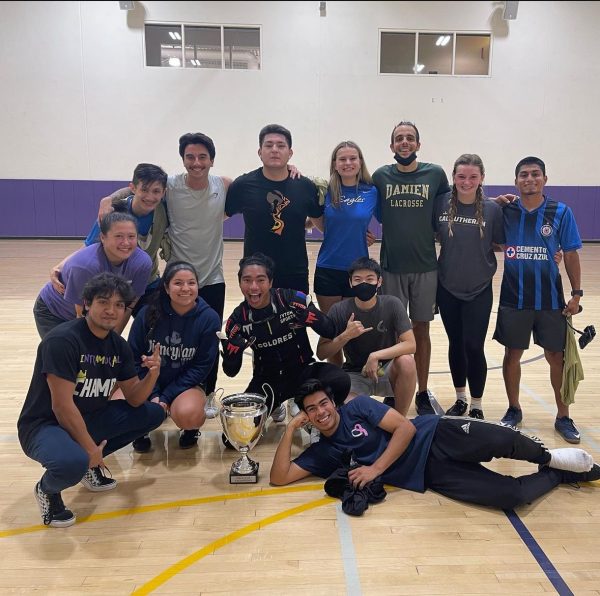Guest lecturer had narrow perspectives
February 28, 2023
Barbara Molony, professor of Japanese History at Santa Clara University, was invited to California Lutheran University to speak about Japanese feminists and “comfort women” during World War II. I appreciated the talk Molony provided, especially on a topic not very well known to many, but she needs to acknowledge views beyond her own.
According to the Cal Lutheran event calendar, Molony came to talk about how, even though the feminists “claimed to be independent of the Japanese state and its military, they always benefited from the imperial privilege of Japanese military protection. To what extent could one argue that feminists failed to look deeply into the gendered violence of Japanese militarism in China (the ‘comfort women’ system)?”
In simpler terms, she was here to provide the historical context of the time and her own view of gendered justice.
“The topic she is discussing is the issue of comfort women, which was prostitution by the Japanese imperial army during World War II,” professor and History Department Chair David Nelson said. “She is studying Japanese feminism and looking at their reaction to comfort women, or the lack thereof, because it is concerning, this issue of gendered justice, as she puts it.”
As Molony puts it, gendered justice is the quest for, and hopefully the achievement of, gender equality. Justice is then to make sure that there are reparations for past inequalities.
By all means, this sounds like a steady basis for her view and a good lens to view the people of the time, but Molony takes it a step further.
“I think we should all examine acts of complicity because these feminist women were not committing the crime, the military did, but they didn’t see it. So they were, in my view, they were complicitous with the evil deeds of a bad government,” Molony said.
I understand the view that those standing by are just as guilty as those that were doing the act, but in a time where women were murdered for less than speaking out against the Japanese military and a Japanese government-sanctioned practice, these women deserve a second view.
Many of these women could have had a fear of death, they were not evil for wanting to live. They were put in an impossible position, one many of us can’t understand. However, in fairness, Molony does point out that not everyone died.
“But the number of people actually killed or given the death penalty for speaking out against the government, among women—the men weren’t likely to be killed—were small, but they suffered other consequences,” Molony said.
Even so, that doesn’t make it any better. Even if they weren’t killed, there are things worse than death that the Japanese government could do, such as being thrown in a prison without any heating or food, and an overall deterioration of health that could cause you to die an earlier death.
“I think it was pretty interesting in how people of the time adjusted and changed based on that to potentially fit into a narrative or were afraid to act out, because, in most authoritarian regimes, if you talked negatively, you disappeared, sent to the woods to starve or, in many cases, shot,” senior History Department Assistant Cole Weiderman said.
That isn’t even mentioning rape and sexual harassment, but that didn’t sway Molony’s view.
“Sexual violence is terrible, but I would rather be subjected to that than to death,” Molony said.
Beyond this naïve statement, that is only Molony’s own view. It isn’t fair to subject her own bias onto others who wouldn’t want to cross that line. This statement is also incredibly harmful and discrediting toward people who have survived these kinds of experiences and still struggle with them today.
I don’t believe Molony started this project with the correct mindset. She had begun this paper with the premise of writing about feminist leader Ichikawa Fusae under the view of seeing Fusae as “my hero.” That already meant everything Molony could say would be positioned in a better light, but when she felt betrayed by Fusae for not speaking out, everything became about how these Japanese feminists were not doing enough.
Using this kind of surface-level examination and bias going in is something that many researchers are explicitly told to avoid. Yet Molony, a professor who teaches at a university and possesses a doctorate, finds herself falling victim to it.
“It’s just mainly questioning your heroes and looking at them as more three-dimensional figures rather than the 2D images that we get. We don’t look at it from every perspective and sometimes that’s blinding,” Weiderman said.
I understand that it could be argued that data and feminism at the time could be hard to find, but Molony said herself that she believes she has enough data. Not to mention, a quick Google search could provide information on Japanese feminism around that time.
The women may have been too frightened to speak out, but once the Japanese government surrendered on Aug. 25, 1945, things began to change. According to Unseen Japan, a Japanese news outlet, when feminists began to rise, the biggest moment was probably the movement’s growth when protestors gathered in Tokyo for women’s liberation.
Unseen Japan says, “These women had a common purpose: to work towards the sexual and political liberation of women. Women shouldn’t be content to be housewives or mothers; women should be free to explore their sexuality unencumbered by patriarchal and capitalist norms/ expectations. They were tired of being considered inferior.”
Once the fear of impending death and near hopelessness at defying their powerful government was removed, hundreds of women came forward for change. If their silence was a symbol of compliance and support for the government and military use of comfort women, then these feminists wouldn’t have done anything.
I appreciated the discussion Molony provided, especially on a topic not very well-known to many, but she needs to acknowledge perspectives that extend further than her own, especially for a paper that is not completed.
“I’m still working on this. I’m still trying to figure out how to address this and I don’t know if I have enough data—which I think I do—data is not the problem to write this, but do I have the right perspective?” Molony said.
As it stands now, I’d say she doesn’t have the right perspective for her work.











Katie • Feb 28, 2023 at 9:31 am